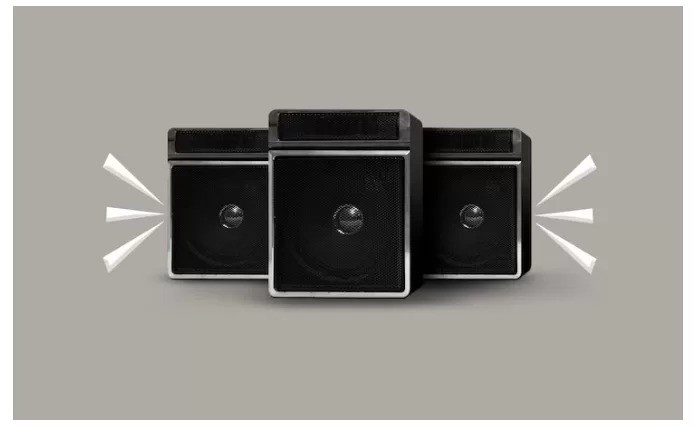If one speaker is louder than the other, it might be due to placement, audio settings, speaker damage, or wiring issues. Adjust placement, check settings, inspect for damage, and fix wiring to balance sound.
Have you ever noticed that one speaker in your home audio system or stereo setup seems louder than the other? This problem can affect your enjoyment of music, movies, or games, leading to a less immersive experience.
Understanding why one speaker might be louder than the other and how to fix it can help you get the best sound possible from your audio system. Let’s explore the common reasons behind this issue and practical solutions to achieve balanced sound.

The placement of your speakers can have a big impact on how they sound. If one speaker is closer to a wall, corner, or any reflective surface, it can produce louder sound compared to the speaker that is further away. Similarly, if one speaker is positioned higher or lower than the other, it can affect the sound balance. Proper placement is key to achieving even sound distribution.
Sometimes, the problem lies within the audio settings of your device or sound system. Many audio systems have balance controls that allow you to adjust the sound levels of each speaker individually. If the balance is set too far to one side, it can make one speaker sound louder than the other. Checking and adjusting these settings can help correct the imbalance.
Physical damage to a speaker can cause it to perform poorly. If a speaker has a blown driver, torn cone, or any other type of damage, it might not produce sound at the same level as the other speaker. This can result in noticeable imbalances. Inspecting your speakers for any visible damage and ensuring they are in good working condition is crucial.
Faulty or loose wiring can also lead to sound imbalances. If the speaker wires are not connected properly or if there is damage to the wires, it can affect the sound output. Make sure that all speaker connections are secure and that the wires are in good condition. Loose or frayed wires can disrupt the signal and cause one speaker to sound quieter or louder than the other.
To fix sound imbalances, start by adjusting the placement of your speakers. Make sure both speakers are positioned at the same height and are equidistant from your listening area. Avoid placing one speaker too close to walls or corners. Experiment with different positions to see if it improves the balance. A good rule of thumb is to place the speakers at ear level when you are seated.
Also Read: What Gauge Speaker Wire – A Step-by-Step Guide to Wire Gauge and Type!
Access the settings menu on your audio system or device to check the balance control. Many systems have a balance setting that lets you adjust the volume of each speaker. If you find that one speaker is too loud or too quiet, use the balance control to make adjustments. Set the balance to the center to ensure equal sound distribution.
If you suspect that one of your speakers might be damaged, inspect it carefully. Look for any visible signs of wear or damage, such as cracks, tears, or loose parts. If you find any issues, consider having the speaker repaired or replaced. Regular maintenance of your speakers can help prevent damage and ensure they function correctly.
To address wiring issues, first disconnect and then reconnect all speaker wires. Ensure that each connection is secure and that there are no frayed or damaged wires. Test your speakers by playing a consistent sound source, such as a song or movie scene with steady audio, to check if the sound balance has improved. Replace any damaged wires to restore proper functionality.

Prevent future sound imbalances by performing regular maintenance on your audio system. Clean your speakers and check the wiring periodically to ensure everything is in good condition. Regularly inspecting your equipment can help you catch any issues early and maintain balanced sound.
Ensure that you follow best practices for setting up your audio system. Use a sound level meter or calibration tool to accurately balance the sound between your speakers. Proper setup can make a significant difference in how your audio system performs.
Investing in high-quality audio equipment can reduce the likelihood of sound imbalances. Quality speakers and audio systems are often designed to provide more consistent and balanced performance. If you’re experiencing frequent issues, consider upgrading your equipment for a better overall sound experience.
Differences in speaker placement, audio settings, speaker damage, or wiring issues can cause one speaker to be louder. Checking these factors can help balance the sound.
Ensure both speakers are at the same height and distance from your listening area. Avoid placing speakers close to walls or corners to improve sound balance.
Inspect for visible damage like cracks or tears. Repair or replace damaged speakers to restore balanced sound and prevent further issues.
Use the balance control on your audio system to adjust the volume of each speaker. Set the balance to the center to achieve even sound distribution.
Perform regular maintenance, use a sound level meter for accurate setup, and invest in quality equipment to maintain balanced sound and avoid imbalances in the future.
To resolve issues with uneven speaker volume, carefully examine speaker placement, adjust audio settings, inspect for damage, and address any wiring issues. Regular maintenance and proper setup are crucial for optimal performance. By following these steps and investing in quality equipment, you can achieve balanced sound and enhance your listening experience. Maintaining your audio system will ensure consistent, high-quality sound for music, movies, and games.
